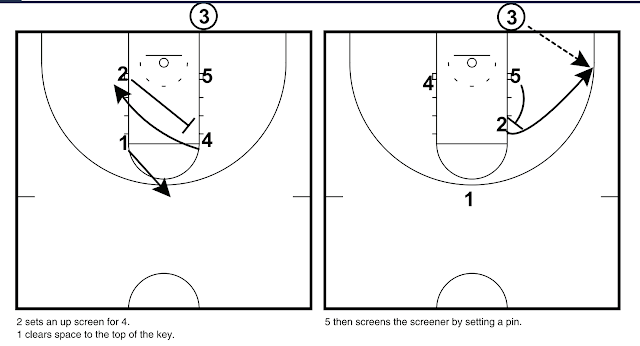Chess champion Garry Kasparov says, "Tactics is knowing what do when there's something to do; strategy is knowing what to do when there's nothing to do." Kasparov says tactics "disturb the balance of a position." He asks how one makes their opponent uncomfortable, while playing the game that fits your personality. But he cautions us to be brutally honest about our mistakes and their origins.
What are our goals? I have no idea what our middle school travel record was over fifty years ago when I played. Our goal was to improve every day. I recall Coach throwing a volleyball at us in practice if we lost sight of the ball. It wasn't cruel or unusual, but it was a different era.
Find balance. Setting expectations about record or winning a championship don't belong on our radar. If we win a lot of games and players are miserable because of envy, roles, or minutes, success escaped us. And if we play bad, undisciplined, or selfish basketball and players are happy, that's failure, too.
Make memories in context of teaching. Was it worthwhile for the players and the families to sacrifice their time, money, energy, and emotion as part of "the experience?" Did players develop friendships, life skills, and maybe networking for the future? Did they learn to see the game better and respect it? Did players learn to be better people, better teammates, and better players? That's all part of strategic program thinking.
"Visualize the game" is how Steph Curry approaches preparation. Controlling emotions involves trial and error to remain under control. Mastery of high standards disempowers opponents.
Poker champion Daniel Negreanu says understanding your hand (strength) comes first, followed by hypothesizing the hands of competitors. He reminds us not to focus on results. "Don't let emotion drive your decisions...emotion gets in the way of logic." He adds, "you're going to make mistakes but there's no reason that you can't correct them." (If you keep suited 2,6 twice consecutively and fill the straight on the flop, that doesn't make it a viable long-term strategy).
Serena Williams keeps a "match book" of notes that are priorities and suggestions to herself to refer to during a match. As coaches, we have our playbook and situational reminders.
Political strategist Karl Rove says, "I like to be on the offense." Have a plan about what you hope to accomplish while being prepared for adjustments.
Poker star Phil Ivey notes, "what is in your control is what you have in front of you, the hands you play, being emotionally level, doing your best, staying present, putting your best foot forward."
Lagniappe: Chris Oliver teaches that attacking the early help can be profitable.
Lagniappe 2: Diagonal STS BOB via XavierA common defensive strategy to counter a perimeter mismatch is to be "early" in help position 1 pass away. Rather than attack the single gap spacing, a smart counter is to pass to a 1 pass away offensive player to attack before the help defender recovers. pic.twitter.com/p0cnYBBo3t— Chris Oliver (@Chris__Oliver) March 8, 2018
